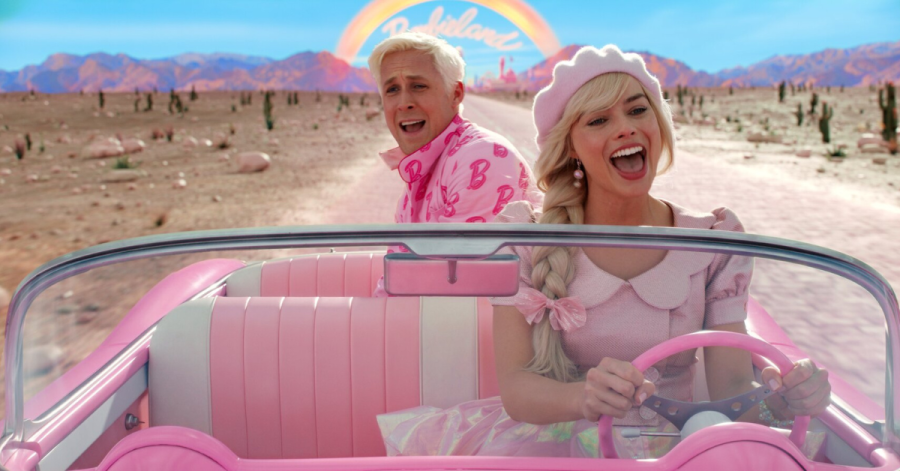“She’s not dead. She’s just having an existential crisis.” This line, delivered by ‘Weird Barbie’ in Greta Gerwig’s “Barbie”, one of the most anticipated blockbusters of summer 2023, had me chuckling in my seat. I had entered the movie theater with the intention of taking a break from my startup-focused world, but the parallels were too striking to ignore. 🎀 Barbie startup lessons 🎀 were unfolding before my eyes in this pink extravaganza, and I couldn’t help but take note.
“Barbie” is not just a pink paradise of fashion and fantasy. It’s a high-concept comedy that dives deep into social critique and female empowerment. Margot Robbie’s Barbie starts as a stereotypical doll character, living in a world where Barbies of all shapes and colors are Nobel laureates and Supreme Court justices. Yet, amidst the humor and the gender-equity jokes, there’s a poignant theme that resonates strongly – the feeling of not being enough. Barbie, despite her perfect plastic world, grapples with self-doubt and the fear of being ordinary. And it’s this very theme that offers a treasure trove of lessons for startup founders.
Barbie startup lessons #1 The power of ordinary ideas
Now, you might be thinking, “What does a plastic doll have in common with the gritty world of startups?” Well, more than you’d expect. Just like Barbie, startup founders often find themselves in a world where everyone else seems to be doing something extraordinary. They’re surrounded by stories of groundbreaking innovations, disruptive technologies, and unicorn startups. And amidst all this, it’s easy to feel like you’re not doing enough, like your ideas are too ordinary to make a difference.
But here’s the twist. One of the key Barbie startup lessons reveals that being ordinary isn’t a shortcoming, but a starting point. It’s the launchpad for her self-discovery and growth. And in the context of startups, let’s not forget that innovation isn’t always about reinventing the wheel. Sometimes, it’s about taking an ordinary wheel and making it extraordinary by putting your own spin on it. Remember that not every startup needs to revolutionize the entire world – most of the time it’s about niche ideas that cater to the specific needs of a very particular group of people. And niche ideas usually provide you with plenty of space to innovate.
Barbie startup lessons #2 Turning doubts into innovation
Let’s address the elephant in the room, though – self-doubt. Just like Barbie, startup founders often grapple with self-doubt and criticism. Barbie faces criticism for setting unrealistic beauty standards, while founders often face criticism for their ideas, their execution, or even their ambition. But the key lesson here is not to let criticism or self-doubt deter you from your path. Doubts can lead to questions, questions can lead to answers, and answers can lead to innovative solutions.
“Ok, but I want to be the person with the idea of all ideas – the biggest of them all. I want to be the one who will entirely change the course of humanity for good with my startup”, I hear you say. Let me ask you a question – are you familiar with the concept of recursive innovation?
Recursive innovation reveals the intricate connections and dependencies among technological breakthroughs. It showcases how every triumph in discovery or invention is rooted in the contributions of numerous previous advancements. It’s like a continuous thread of progress, where each step forward is built upon the solid foundation of past achievements. This interconnectedness of ideas highlights the collaborative nature of human ingenuity and reminds us that our journey towards innovation is a collective effort. (And yes – this is the idea behind our media’s name.)
So next time you’re having self-doubts about your startup idea, remember this key insight from the Barbie startup lessons and turn the distress into a catalyst for (recursive) innovation.
Barbie startup lessons #3 Embracing the journey
I’m eye-rolling at myself while writing this but at the end of the day what’s true is true. Here we go, brace yourselves – ✨ it’s not about the destination, it’s about the journey ✨. You know, the rollercoaster ride from ideation to execution that every startup founder knows all too well.
In the movie, one of the most profound Barbie startup lessons is Barbie’s journey, which is a whirlwind of self-discovery. She starts as a stereotypical doll, but as she navigates through her world, she learns to challenge the status quo and redefine her own identity. And to expand the cliché a bit further – this journey isn’t just about the journey itself; it’s about the transformation she undergoes along the way.
When it comes to startup founders, the transformational journey is all about challenging existing norms, pushing boundaries, and learning to adapt. It’s about finding innovative solutions to problems and learning from failures. It’s about understanding your market, your competition, and most importantly, your own strengths and weaknesses. The Recursive has talked to hundreds of startup founders and oftentimes they all say the same thing – the journey itself is where the real magic happens.
Barbie startup lessons #4 The value of authenticity
And finally, let’s talk about authenticity. Imagine Barbie, in all her pink glory, standing in front of a mirror. She’s not looking at her perfect plastic figure or her impeccably styled hair. No, she’s looking deeper. She’s looking at herself, at her true self. And she’s asking, “Who am I? What is my purpose? Where do I fit in this world?”
Sounds familiar, doesn’t it? Startup founders often find themselves asking the same questions. They’re constantly trying to define themselves, to find their place in the world, to understand their purpose. The pressure they put on themselves can make it easy to lose sight of who they really are.
Barbie’s lesson here, and one of the most important Barbie startup lessons, is about understanding that your uniqueness is not a liability, but an asset. As basic as it sounds, your individuality is what sets you apart, what makes you stand out in a crowded market. Remember that in the startup world, authenticity is key.
Customers are drawn to brands that are genuine, that have a story to tell, that are not afraid to show their true colors. Investors, too, appreciate founders who are honest, who are transparent, who are real. It’s not just about creating a successful startup, it’s about creating a startup that reflects who you are, that embodies your values, that resonates with your vision.
So, whether you’re a Barbie in a startup world or a startup founder in a Barbie world, remember this: You’re more than Kenough.
Love all things pop culture? You might also enjoy these articles:
- 🎀 5 Lessons for Startup Teams from Guardians of the Galaxy Vol. 3
- 🎀 7 Leadership Lessons From Rhaenyra Targaryen, the First Woman on the Iron Throne
- 🎀 From Toy Story to Tech Story: How to Use Pixar’s Storytelling Techniques to Stand Out in a Crowded Market
- 🎀 The A-List Investors: Top Celebrities Diving into the World of Startups








